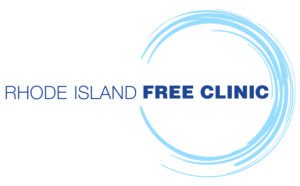Area Health Education Center (AHEC) Student Resources
Student Trainee Handbook
Before attending a student trainee orientation session, please read through the Trainee Handbook.
It contains important information regarding student expectations and Clinic policies & procedures.
Click for Student Trainee Handbook
Useful Information and Links:
Social Determinants of Health
Social determinants of health is the idea that health is determined not only by individual genetics and lifestyle choices, but also by the social and physical environments in which we live. Social determinants often include factors such as economic status, built environment, and education.
In 2010, social determinants of health was named as one of the topics on the federal government’s Healthy People 2020 initiative list. Healthy People topics are 10-year national objectives of the federal government for improving the nation’s health.
For more information on social determinants of health, visit the links below:
- https://www.healthypeople.gov/2020/About-Healthy-People
- https://www.cdc.gov/socialdeterminants/
- http://www.who.int/social_determinants/en/
- https://www.kff.org/disparities-policy/issue-brief/
beyond-health-care-the-role-of-social-determinants-
in-promoting-health-and-health-equity/
Cultural Competency
Cultural competency is the practice of having attitudes and behaviors that are considerate of the health beliefs and cultural and linguistic needs of diverse individuals when providing health care.
Cultural competency is important because it determines the quality of care received by patients, and therefore determines patient health outcomes. In fact, cultural competency is so important that US Department of Health and Human Services has published “A Physicians Practical Guide to Culturally Competent Care.”
For more information on cultural competency, visit the links below:
- https://www.hhs.gov/ash/oah/resources-and-training/
tpp-and-paf-resources/cultural-competence/index.html - https://cccm.thinkculturalhealth.hhs.gov/
- https://nccc.georgetown.edu/
Interprofessional Teamwork
Medicine is a highly collaborative field that involves providers from varying health professions and allied health professions. As such, in order to safely and effectively deliver health care, health professionals must be able to work as part of a diverse care team.
For more information on interprofessional teamwork, visit the links below:
- https://www.rwjf.org/en/library/research/2011/09/
what-can-be-done-to-encourage-more-interprofessional-collaborati.html - https://www.ipecollaborative.org/
- https://journals.lww.com/ajnonline/Fulltext/2015/03000/
Interprofessional_Collaboration_and_Education.26.aspx
Underserved Patient Populations in Rhode Island
Certain groups of patients tend to have poorer health due to systematic obstacles to accessing health care and achieving health. These underserved patient populations tend to be defined according to racial, ethnic, social, economic and geographic characteristics.
One of the goals of the Rhode Island Free Clinic and the AHEC Program is to increase access to healthcare for underserved patient populations in Rhode Island.
For more information on underserved patients populations in Rhode Island, visit the links below:
IMPORTANTE: Nuestra lista de espera está abierta, llame al 401-274-6347 para anotarse. No ofrecemos citas para ser vistos el mismo día. Para servicios de emergencia o de urgencia, llame al 911 o visite una sala de emergencia cercana a usted.

